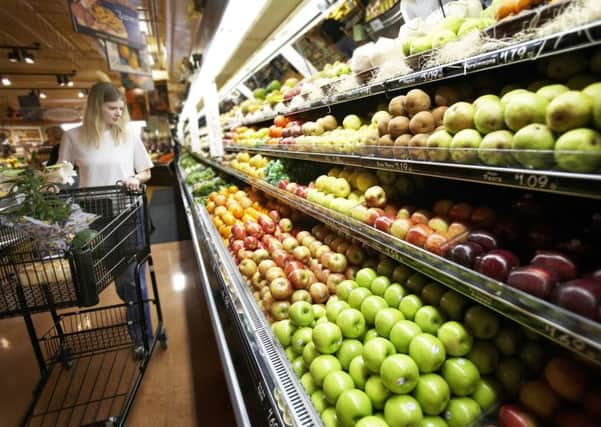Failure to appreciate food is harming the planet


The food industry has been ingenious in developing ways to take the difficulty of making decisions about food consumption away from us, so we don’t have to think – we just have to eat. Too often we don’t think about what we’re eating, we don’t know how many calories we’re consuming and what we’re eating isn’t registering with our brains, so we just continue eating. The problem doesn’t just lie with the food industry, it lies with us failing to take responsibility for our consumption.
We need to pay attention to every aspect of the food we eat all the time – when we buy it, when we prepare it, when we eat it and when we throw out the leftovers. It’s essential for our diet and health, and for the health of the planet.
Advertisement
Hide AdAdvertisement
Hide AdIn my experience working in the food industry, what consumers want is good quality food, not cheap food. Nonetheless, cheap food is what is constantly promoted by supermarket chains and price wars are used to entice shoppers in. But what does cheap mean? Is something really cheap if the production methods used to produce it rob the soil of nutrients for generations to come? Is it cheap if it leads to over-consumption which then deprives others, considerably more in need? Is it cheap if the labour used to produce it hasn’t been fairly recompensed?
Another difficulty for consumers is knowing what is good for us and what isn’t as advice frequently changes.
In the 1990s fat was highlighted as the “baddie” and low-fat products began to appear. The problem with these has been well documented – the most effective way to reduce fats but retain flavour and texture is to replace those fats with sugars – the fat goes down, the calories go up, but worst of all, so does consumption. I remember sitting in focus groups, listening to women discuss the joys of half-fat digestives – if they had lower fat, they’d be able to eat twice as many.
Part of the problem stems from the consumer’s desire to “eat on the hoof”. When the term “hand-held” came into our vocabulary, it brought about a proliferation of easy to eat food from pre-packed sandwiches and wraps to pasties. We gravitated towards products that could be eaten on the move while driving from one high pressure situation to the next. In the days before mobile phones, if you were running late, you weren’t going to be able to text or call anyone, so you ate on the move to save as much time as possible. Today the idea of sitting down for more than 30 minutes to eat a freshly prepared meal is alien to many of us. The trouble with eating on the move is, you tend not to notice what you’ve eaten – you forget, your brain never gets the message and therefore your tummy still feels deprived, feeding a cycle of empty calories and over-consumption.
Now that we know (or think we know) animal fats are not as bad as we used to believe, should that be a licence to eat as much meat as we like? Meat consumption is on the up in countries like India and China as the growing middle classes become more affluent and able to afford it. Is this good news for our livestock farmers or bad news for the planet? With rising meat consumption comes the need for more land, not only for grazing, but also for producing animal feed, putting more pressure on the production of other foodstuffs. The West is already over-consuming resources on a massive scale (one report suggests it would take 4+ Earths to support the world’s population if everyone consumed at American levels). Here in Scotland it can be difficult to understand water shortages, but that doesn’t change the fact that livestock production is water intensive, wherever it takes place. Not only are our dietary habits forcing competition for arable land, they’re consuming huge quantities of precious water.
Eating healthy food is always something of a minefield because the definition of healthy changes week to week, but it’s a good start to thinking about what you eat. Having thought of something healthy to eat, enjoy it while you’re eating it. Let those calories provide you with pleasure as well as satiety. Give the food you’ve just eaten time to reach your stomach as well as your brain. Think of the people who produced your food and ask if they could afford to it eat too, and if the answer is no, ask yourself if you’re satisfied with that. If not, what will you do about it? If you’re about to bin the remains of yet another bag of half-eaten salad, ask what the true cost of that is – the wasted food (and growing opportunity, the wasted water), the wasted packaging, the emissions that provided no benefit – better still, think about that waste next time you buy bagged salad.
• Helen Pratt is project manager, Interface Food & Drink, www.interface-online.org.uk